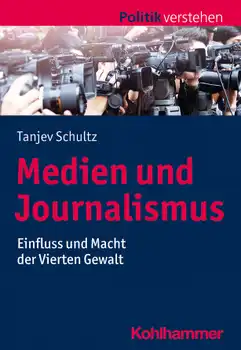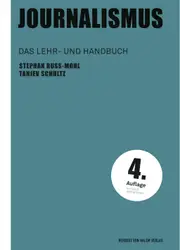Public opinion is critically important in any democracy, which is why the media are rightly described as the ?Fourth Estate=. Against this background, it is important for politically responsible citizens to know how the media function and operate. Tanjev Schultz describes the role of the media in democratic systems in a clear, concise and easy-to-understand manner. He addresses the tension between required standards and reality, between expectations of the media and what actually happens. He lists the positions commonly taken in media criticism and outlines the findings of media research. The book also discusses changes in the media, resulting in particular from digitalization and the popularity of social media platforms, as well as current controversies and phenomena such as ?fake news= and Lügenpresse (?lying press=) accusations.
Medien und Journalismus : Einfluss und Macht der Vierten Gewalt
Starten Sie noch heute mit diesem Buch für 0 €
- Hole dir während der Testphase vollen Zugriff auf alle Bücher in der App
- Keine Verpflichtungen, jederzeit kündbar
Autor*in:
Sprache:
Deutsch
Format:

Spiele im Politikunterricht
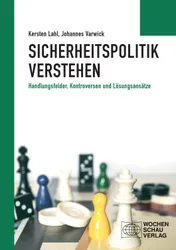
Sicherheitspolitik verstehen : Handlungsfelder, Kontroversen und Lösungsansätze
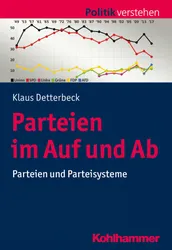
Parteien im Auf und Ab : Neue Konfliktlinien und die populistische Herausforderung
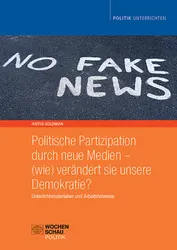
Politische Partizipation durch neue Medien - (wie) verändert sie unsere Demokratie? : Unterrichtsmaterialien und Arbeitshinweise

Blacklash : How Obama and the Left Are Driving Americans to the Government Plantation
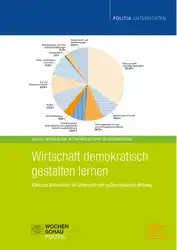
Wirtschaft demokratisch gestalten lernen : Kritische Materialien für Unterricht und außerschulische Bildung

Planspiele und Politiksimulationen in der Hochschullehre

Ergebnisbilder im Geschichtsunterricht : Der Nationalismus und die Lösung der Deutschen Frage - Eine zeitgeschichtliche Analyse zur Förderung einer kritischen Urteilsfähigkeit

Methodentraining für den Politikunterricht : Neuauflage 2020

Sicherheitspolitik verstehen : Handlungsfelder, Kontroversen und Lösungsansätze

The Tao Of Writing : Imagine. Create. Flow.

Kategoriale Urteilsbildung im Politikunterricht
